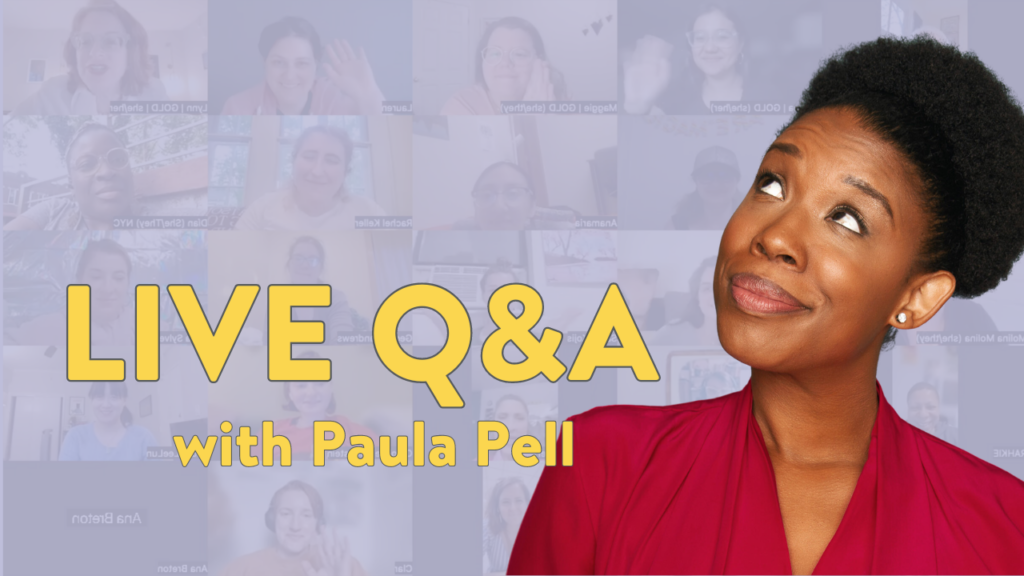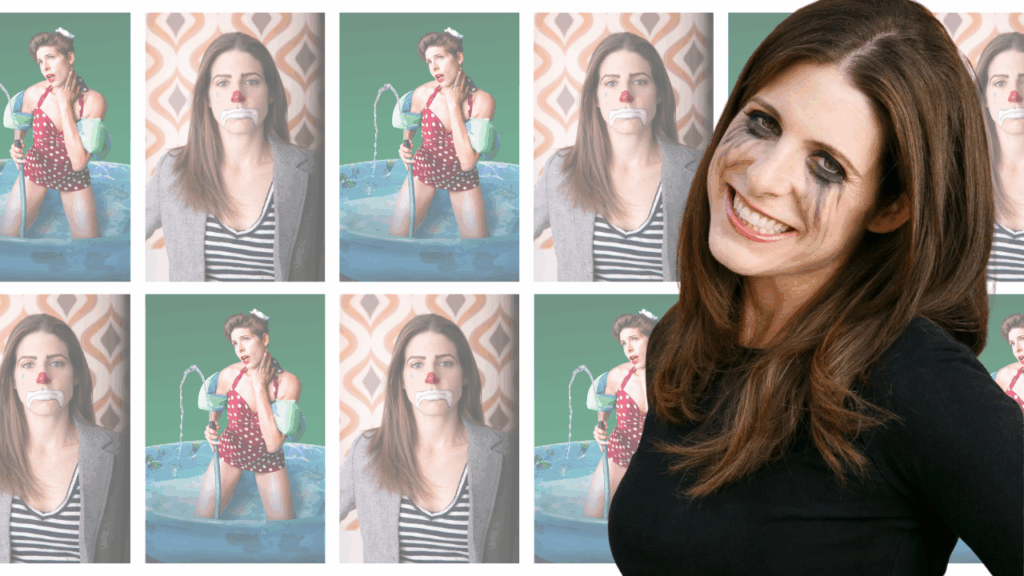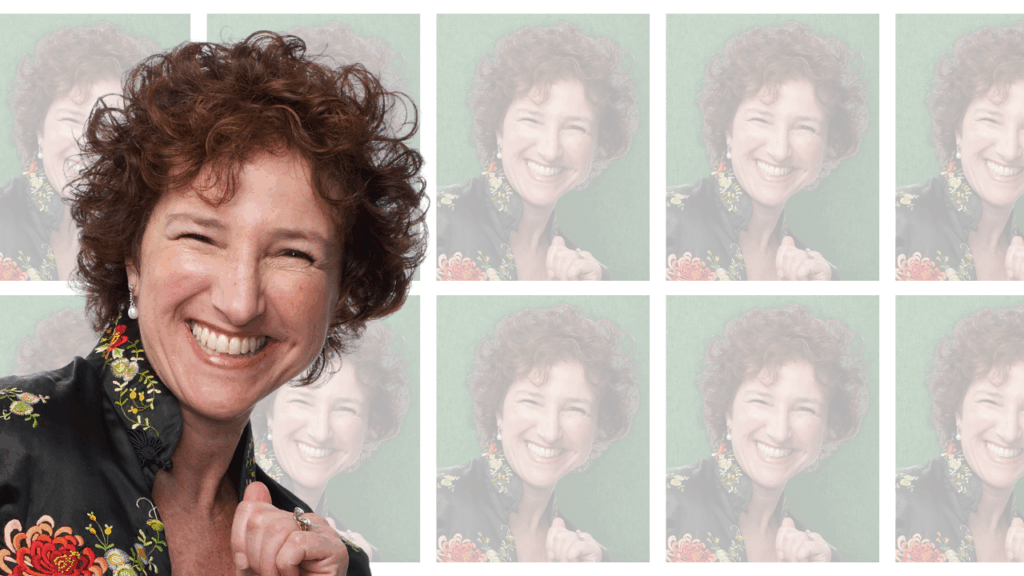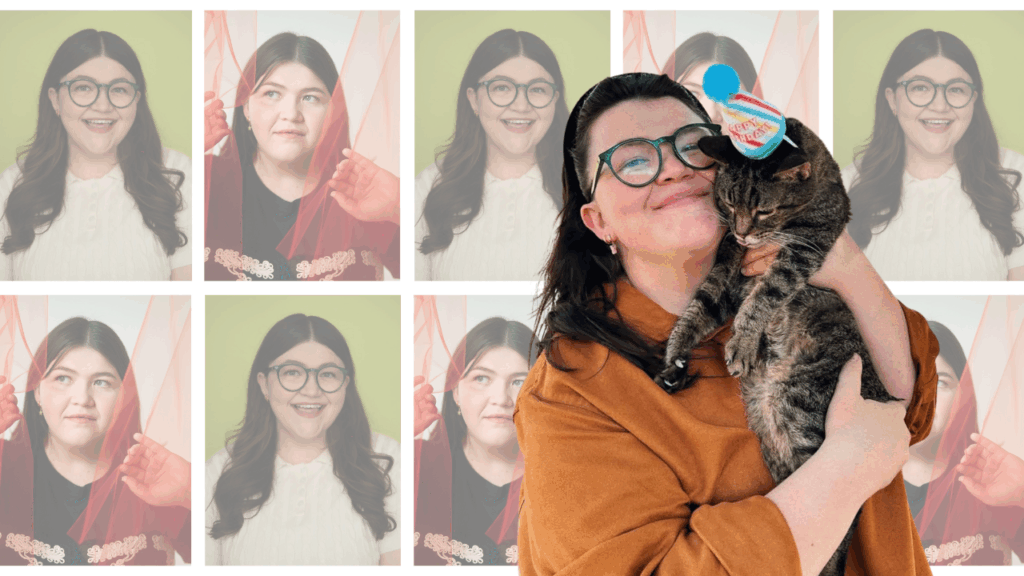RECAP: Joyelle Nicole Johnson still gets nervous

One of the most compelling parts of the GOLD Q&As is that you learn things about the guest comedian that you never would from another interview. Of course, we get the information on comedy, the scene, finding a voice, dealing with rejection…but we also learn, for instance, that Joyelle Johnson loves history. She has the presidents and vice presidents memorized, and her favorite is William Henry Harrison, “who died in office after just 31 days in office,” she informs us.
Joyelle Johnson is hot off of her debut comedy special Love Joy, which was shot on her 40th birthday and produced by Jimmy Fallon. (Ever heard of him?) “It still feels unreal that it happened,” Joyelle told the GOLDies. The special was shot in 2021, so a lot of protocols had to be followed in order to avoid ye olde pandemic. There were many obstacles to overcome, and Johnson did. When asked how she handled the pandemic earlier, she responded that she did lots and lots of Zoom shows because she “needed attention.” Sound familiar? “I really went from begging to perform in random bars in Ohio to filming a special at the Bell House.”
Joyelle Johnson has opened for big-name comedians including Hannibal Burress, Dave Chapelle, Maria Bamford, and Ilana Glazer among others. She says it’s fun to get to experience other comedians’ fan bases and hopefully pick up a few of them.
On the subject of getting started and connecting with your audience, Joyelle gave us a quote from Annette Benning, “Nerves are the respect that we pay to our audience,” and followed up with her own thoughts, “You should be scared and respect it, there’s a lot of power on that stage, you have the power to heal people and or hurt them. I’m always trying my best to put healing happy power to the world.” It is interesting to think about comedy in such a way – after all, if you weren’t making people laugh, you would just be considered a public speaker or a politician or maybe just somebody on a soap box. Either way, you are expressing ideas to people, so you want to put some thought into what it is you’re trying to convey.
“The nerves never leave,” Johnson says, “they just change as you grow as a comedian.” She tells us about her first time up on stage, “it was a terrible mistake,” she laughs. She was bombing not getting laughs, and feeling uncomfortable, but as we know this is a part of being a comedian. When she got off stage, her friend said to her, “You’re a comedian now, so don’t stop.” Similar to the insight of Margaret Cho, Johnson emphasizes the importance of perseverance, “You gotta be able to take a bomb and not let it phase you,” take it all in as information along the way, not a final result.
Joyelle also spoke about her material and process, which isn’t as structured as some comedians. For instance, she doesn’t necessarily wake up at 5 am and write for three hours. “I’m more of a walk down the street talking to myself type,” she likes getting to a level of comfort with her material on stage where it feels like she’s just talking to a friend on the phone. And on subject matter, she says, “The best material is always rooted in the truth.”
Johnson attributes this mindset to her comedy origin story, growing up watching comics like George Carlin, whose comedy challenged ideas of authority. This, of course, can be a daunting task, particularly as a Black woman in America. As is shown time and time again, however, comedy makes it easier for people to change their minds. Now Joyelle works with a group called Abortion Access Front, touring around the US and talking to protesters outside of clinics. “Nobody wants to hear, ‘Hey you’re wrong,’’’ Johnson explains, “Humor helps in teaching and opening conversations and minds. It’s the difference between playing chess and checkers.” That is to say, it is important to remember the long game when trying to evoke empathy from people whose opinions, values, and ideas differ from yours.




